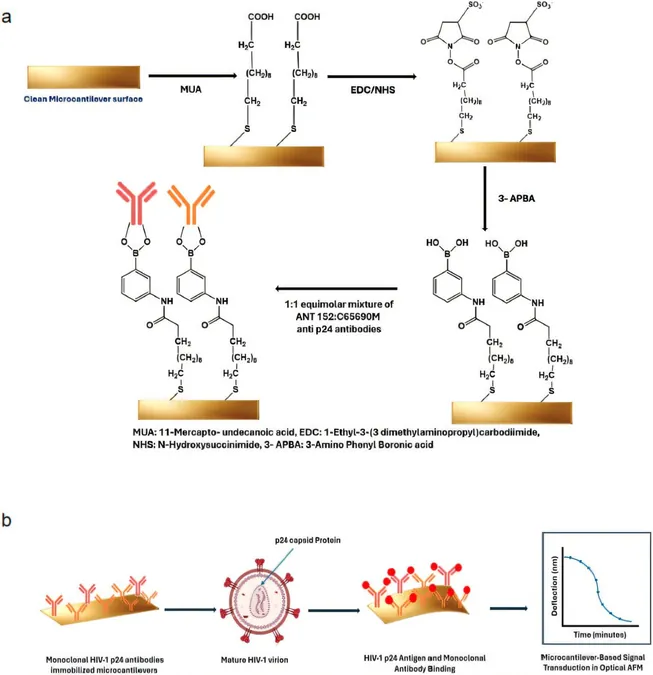
Revolutionary HIV Testing Technology Promises Results in Just Minutes!
2025-04-02
Author: Nur
Introduction
In a groundbreaking advancement from Northwestern University, a multidisciplinary team of scientists has unveiled a transformative technology that could revolutionize HIV testing. This novel point-of-care test aims to deliver rapid, accurate HIV results within minutes, significantly outperforming traditional lab-based diagnostics.
The Challenges of Traditional HIV Testing
Historically, testing for HIV has relied on the detection of specific antibodies that only develop several weeks after an infection has occurred. This delay has hindered early diagnosis and interfered with patient care and HIV prevention initiatives. Although modern tests that identify both antibodies and the p24 antigen—a critical early marker of HIV infection—have become the gold standard, they still depend on clinical laboratories, leading to prolonged wait times, higher costs, and the need for multiple medical visits.
Innovative Testing Technology
The innovative technology detailed in a recent study published in *Biosensors and Bioelectronics* utilizes a nanomechanical platform featuring tiny, sensitive cantilevers. These can detect multiple HIV antigens with remarkable accuracy in just a few minutes. Mass-producible silicon cantilevers come equipped with a digital readout and can be integrated into a solar-powered device, making it feasible to deploy these tests in remote and underserved areas where timely access to healthcare is critical.
Expert Insights
Research co-author Judd F. Hultquist, a virologist, expressed hope that this technology will pave the way for improved HIV diagnostics and ultimately contribute to the eradication of the epidemic.
Broader Applications of the Technology
Following successful trials with COVID-19 testing, the research team believes this biosensor holds promise for diagnosing additional diseases. The next target in their sights could potentially be measles, especially as cases have surged in several U.S. states, underscoring the need for innovative point-of-care solutions.
Multi-disciplinary Collaboration
Led by co-corresponding authors Vinayak Dravid (a materials engineer) and Hultquist, alongside micro- and nanofabrication expert Gajendra Shekhawat, the project seeks to address a challenging aspect of HIV testing: its varying strains. Dravid highlighted the versatility of microcantilever technology, emphasizing its ability to adapt to different pathogens.
Testing Methodology
The research commenced with pure p24 antigen samples, where antibodies were layered onto the gold-coated cantilever's 'fingers' to gauge the strength of the p24 bond. Following this promising proof-of-concept, the team progressed to human blood samples—a much more complex medium—showing that their test maintained its specificity for the p24 antigen.
Addressing Genetic Diversity
To tackle HIV's genetic diversity, the scientists incorporated broadly cross-reactive antibodies into the test, ensuring effective detection across various HIV-1 subtypes. This adaptation enables robust performance in diverse global contexts, addressing a significant challenge in HIV diagnostics.
Future Endeavors
Moreover, to enhance the utility of the test, the researchers are aiming to develop a point-of-care solution that simultaneously detects HIV, hepatitis B, and hepatitis C antigens. This is crucial, given the high incidence of hepatitis co-infections among people living with HIV, which can lead to severe liver complications if not treated promptly.
Conclusion
As we stand on the brink of this healthcare revolution, the potential impact of these rapid diagnostic tools could drastically change the landscape of public health, ensuring early and efficient treatment for some of the world's most vulnerable populations. Keep an eye on these developments, as they may close the chapter on long waits for crucial HIV test results!




 Brasil (PT)
Brasil (PT)
 Canada (EN)
Canada (EN)
 Chile (ES)
Chile (ES)
 Česko (CS)
Česko (CS)
 대한민국 (KO)
대한민국 (KO)
 España (ES)
España (ES)
 France (FR)
France (FR)
 Hong Kong (EN)
Hong Kong (EN)
 Italia (IT)
Italia (IT)
 日本 (JA)
日本 (JA)
 Magyarország (HU)
Magyarország (HU)
 Norge (NO)
Norge (NO)
 Polska (PL)
Polska (PL)
 Schweiz (DE)
Schweiz (DE)
 Singapore (EN)
Singapore (EN)
 Sverige (SV)
Sverige (SV)
 Suomi (FI)
Suomi (FI)
 Türkiye (TR)
Türkiye (TR)
 الإمارات العربية المتحدة (AR)
الإمارات العربية المتحدة (AR)